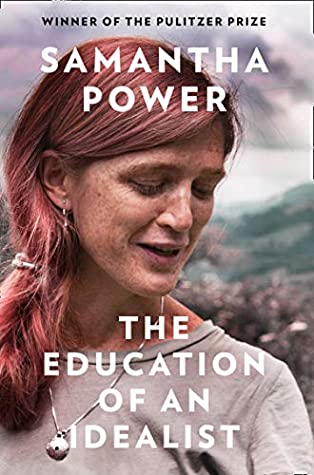More on this book
Community
Kindle Notes & Highlights
To this day, despite various therapists’ insistence that I must be repressing anger toward her, I don’t fault Mum for what happened. I have read widely on how children are quicker to blame themselves than to acknowledge their parents’ flaws and bad decisions.
“What was horrible about the communist rule,” Tatjana told us, “was that the man in front of you ordering you around was very stupid, and you had to listen to him.”
“Do you think what is happening in Bosnia is because of the absence of good or the presence of evil?”
“The Serb forces in Bosnia are cruel,” he said, “but they are always trying to figure out how they can get what they want without provoking US intervention. They bomb, they probe, they watch, they pause, they bomb again. Russia’s forces in Chechnya know they are free to do anything they please. They know nobody will stop them. There are no lines they won’t cross. I’ve never seen anything like it.”
When I reached out to a prominent evangelical leader to better understand what was driving the community, I received a refreshingly straightforward response. “Killing is wrong, whether you’re killing a Jew, a Christian, or a Muslim,” he said. “God made the people there in Darfur. For us to ignore them would be a sin.”
He smiled and remarked, “In many ways, the book I wrote about my father is all about my mother.”
I was reminded of President Johnson’s famous observation that a leader’s problem was not in “doing what’s right, but knowing what’s right.”
“We’re pulling the trigger on this thing,” he told me. “You can’t tell anyone. We’ll probably announce in mid-January. It’ll be fun.”
“When the game gets close and something big is on the line, it all slows down, and I see things better.”
“Just gimme the ball.”
“You were never off the team … just taking a break to find true love.”
“Nothing in life is as important as you think it is when you are thinking about it.”
Hirschman’s thesis was that those who didn’t want to pursue a particular course of action tended to argue that a given policy would be futile (“futility”), that it would likely make matters worse (“perversity”), or that it would imperil some other goal (“jeopardy”).
a Peanuts cartoon strip showing a disconsolate Charlie Brown after his baseball team was thumped 184-0. “I don’t understand it,” Charlie Brown says. “How can we lose when we’re so sincere?”
Former UN secretary-general Dag Hammarskjöld may have best summed up both the UN’s track record and its promise when he said it was created “not to lead mankind to heaven but to save humanity from hell.”
I often heard from Vice President Biden, quoting his own mother: “Nobody’s better than you, but you’re better than nobody.”
After the vote, I spoke directly to Russia—and Vitaly: “You do not get to choose your own facts and your own law. The law tells us your actions are unlawful. The facts tell us you are taking territory from a sovereign neighbor. And the vote here tells us all you are alone.”
This was to be the night when young girls saw—and thus believed—that they could do anything. Instead, we were about to elect to our highest office a man who had boasted about forcing himself on women.
People who care, act, and refuse to give up may not change the world, but they can change many individual worlds.


